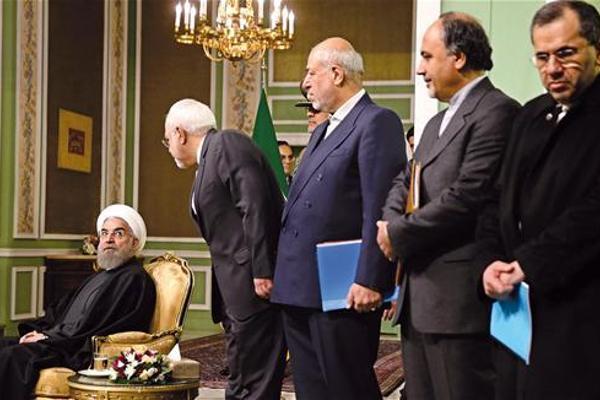Iran to work on nuclear-powered vessels after US ‘violation’ of deal
BEIRUT/VIENNA


Nuclear experts said that Iranian President Hassan Rouhani’s move, if carried out, would probably require Iran to enrich uranium to a fissile purity above the maximum level set in the nuclear deal to allay fears of Tehran building an atomic bomb.
Rouhani’s announcement marked Tehran’s first concrete reaction to a decision by the U.S. Congress last month to extend some sanctions on Tehran that would also make it easier to re-impose others lifted under the nuclear pact.
The White House said it was aware of Iran’s order and noted that Rouhani had said any such work on the vessels would be done within the framework of Iran’s commitments.
“The announcement from the Iranians today does not run counter to the international agreement to prevent Iran from obtaining a nuclear weapon,” White House spokesman Josh Earnest told a news briefing, according to Reuters.
U.S. State Department spokesman John Kirby said the United States was confident the International Atomic Energy Agency, which inspects Iran’s nuclear sites, would be able to analyze Iran’s compliance with the deal.
“There’s a lot we don’t know about it, what it means,” Kirby said, referring to Rouhani’s announcement, at a news briefing on Dec. 13. A marine nuclear propulsion program is a “massive undertaking for any nation” and would likely take decades to realize, he added.
Rouhani described the technology as a “nuclear propeller to be used in marine transportation,” but did not say whether that meant just ships or possibly also submarines. Iran said in 2012 that it was working on its first nuclear-powered sub.
Rouhani’s words could stoke tensions with Washington, already heightened by U.S. President-elect Donald Trump’s vow to scrap the deal, under which Iran curbed its nuclear fuel production activities in exchange for relief from economic sanctions.
Rouhani also ordered planning for production of fuel for nuclear-powered marine vessels “in line with the development of a peaceful nuclear program of Iran.”
But under the nuclear settlement Iran reached with the United States, France, Germany, Britain, Russia and China, it is not allowed to enrich uranium above a 3.67 percent purity for 15 years, a level unlikely to be enough to run such vessels.
“On the basis of international experience, were Iran to go ahead with such a [nuclear propulsion] project, it would have to increase its enrichment level,” said Mark Hibbs, nuclear expert and senior fellow at Carnegie Endowment for International Peace.
“That’s the point, because Iran would be looking for a non-weapons rationale to provocatively increase its enrichment level in the case that the deal with the powers comes unstuck.”
He pointed out that countries with more advanced navies and nuclear programs have been working on propulsion reactors for decades. Such technology might need uranium enriched to around 20 percent purity.
A Russian Foreign Ministry source told RIA news agency that a careful reading of Rouhani’s order showed he was talking only about developing power-supply units for nuclear-powered marine vessels, but not higher-enriched uranium itself, so “strictly speaking” this would not contravene the nuclear deal.
But the source acknowledged that such vessels typically ran on higher-enriched uranium prohibited by the accord.
